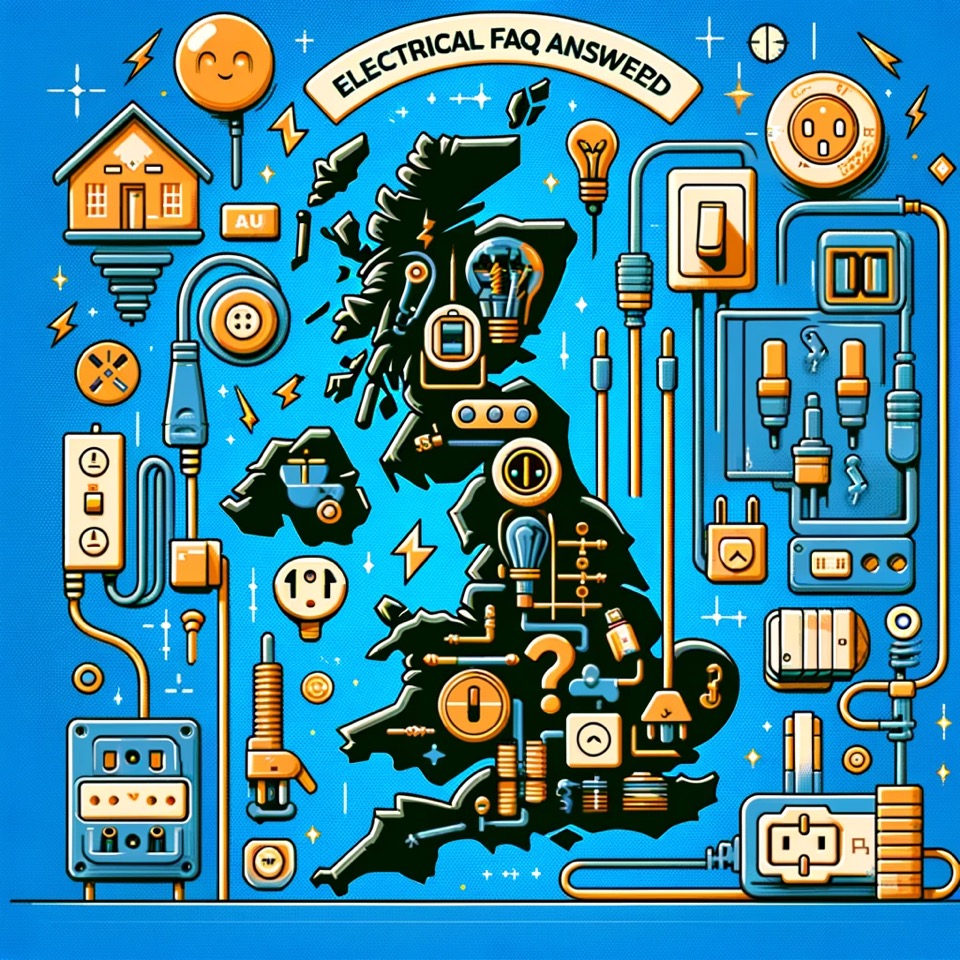
Navigating Electrical Mysteries: Common UK Electrical Questions Answered
The electrical FAQ page is new in February 2024 and is expected to have a navigation system to new exciting articles soon.
Electricity is the lifeblood of modern homes, powering everything from the smallest gadget to the largest appliance. However, the complexity of electrical systems, especially in the UK with its unique standards and regulations, often leads to a plethora of questions. This article aims to shed light on some of the most common electrical emergencies & queries specific to the UK, offering clear and concise answers to help demystify the topic for homeowners and residents alike.
Common Questions Asked About Our Service in regards to Electrical Faults
To demystify the process and help you feel prepared, here are answers to some frequently asked queries:
- Q: How quickly can an emergency electrician reach me in Birmingham?
- A: Typically, an electrician 24 hour emergency service in Birmingham aims to be at your door within an hour, depending on your location and traffic conditions.
- Q: What should I do while waiting for the emergency electrician?
- A: Ensure your safety first. Avoid using electrical devices or attempting DIY fixes. If possible, turn off your electricity at the main switch.
- Q: Can emergency electricians handle any type of electrical issue?
- A: Yes, from residential wiring problems to commercial electrical failures, these experts are equipped to tackle challenges big and small.
- Q: What are the signs I need an emergency electrician?
- A: If you're experiencing power outages, flickering lights, burning smells, or any unusual electrical activity, it's time to call in the experts.
- Q: Can you handle urgent electrical issues at any hour?
- A: Absolutely! Our "electrician 24 hour emergency" services in Birmingham mean we're always ready, day or night.
- Q: What if my electrical issue is actually related to my plumbing or boiler?
- A: Electrical issues can sometimes be symptoms of a broader problem. If we identify a problem that falls outside our expertise, such as plumbing or boiler issues, we'll advise you on the steps to take and recommend a trusted, skilled engineer in that field. Your safety and the integrity of your home's infrastructure is our top priority.
Other General Questions Asked About Electrical
- Why Do UK Plugs Have Three Pins?
- What is the Purpose of the Fuse in a UK Plug?
- Can I Replace a Light Switch Myself?
- Why Are My Lights Flickering?
- What’s the Difference Between a Circuit Breaker and a Fuse?
- Is It Safe to Use Extension Leads Permanently?
- How Often Should Electrical Installations Be Checked?
UK plugs are distinctively designed with three pins: two flat horizontal pins for live (brown wire) and neutral (blue wire), and a longer, vertical earth pin (green and yellow wire). This design is not just for physical stability; the earth pin provides an essential safety feature, grounding the appliance to prevent electric shock. Additionally, the earth pin opens the socket's shutter, allowing the live and neutral pins to be inserted, which adds an extra layer of safety.
The fuse in a UK plug is a critical safety device designed to protect the cable from overheating and potentially causing a fire. Should the current flowing through the circuit exceed the rated value of the fuse, the fuse will 'blow' or break the circuit, stopping the flow of electricity. Fuses in UK plugs are rated according to the power needs of the device, ensuring that each appliance has appropriate protection.
Replacing a light switch is something that many UK homeowners consider doing themselves. While it is a relatively straightforward task for those with some DIY experience, it's essential to remember that working with electricity carries significant risks. The UK's Wiring Regulations (BS 7671) suggest that only competent persons should undertake electrical work. If you're not confident in your abilities or unsure about the safety procedures, it's best to call a professional electrician.
Flickering lights can be caused by various issues, from simple to complex. Common reasons include loose light bulbs, fluctuating voltage in your home's electrical system, or more serious wiring problems. If re-tightening the bulb doesn't solve the issue, it could indicate a need for professional diagnosis to prevent potential hazards.
Both circuit breakers and fuses serve to protect an electrical circuit from damage caused by excess current. The primary difference lies in their operation and usability. A fuse will melt and need replacing once it has 'blown,' whereas a circuit breaker can simply be reset after tripping. Circuit breakers offer a more convenient and reusable solution for modern electrical systems.
Using extension leads permanently is not recommended. Extension leads are designed for temporary use and can become a fire hazard if overloaded or used to power high-demand appliances for extended periods. For long-term needs, consider installing additional wall sockets in your home, adhering to UK safety standards.
The UK's Institution of Engineering and Technology recommends that homeowners have their electrical installations checked at least every ten years. Properties with swimming pools should be inspected annually. Regular checks ensure that your home's electrical system complies with safety standards and can help identify potential issues before they become serious problems.
Conclusion: Electrical systems are complex and can be daunting, especially when dealing with the unique aspects of the UK's standards. By understanding the basics and recognizing when to call in a professional, you can ensure your home remains safe and your electrical system operates efficiently. Remember, when in doubt, always consult with a certified electrician to handle your electrical concerns safely, specially when requiring an emergency electrician.